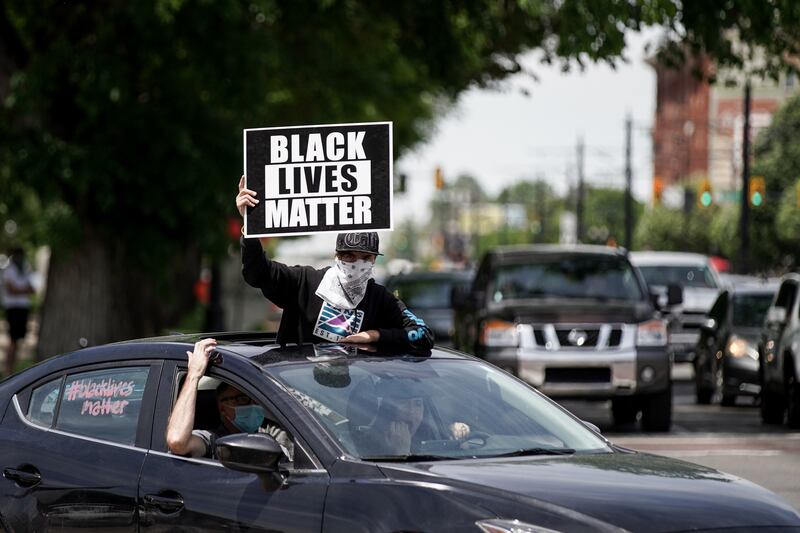Does this sound familiar? “You see a black man killed by a white cop, I see an innocent man killed by a corrupt cop.” Both are true, yet this statement is dangerously underscored by the refusal to see color, or racism, as the systemic issue. Adhering to colorblind thinking sustains white fragility and privilege. It allows white folks to maintain distance from any discomfort they might feel if they looked the issue, and themselves, in the face to recognize that white supremacy is as unconscious as breathing in the United States.
White fragility is “a state in which even a minimum amount of racial stress becomes intolerable, triggering a range of defensive moves” (Robin DiAngelo, page 54). The defensive move here is the quickness to say, “Oh, but I don’t see color. We are all the same inside.” Such statements deflect any responsibility the speaker has to address the issue, make it a nonissue, and maintain the comfort and privilege the speaker is accustomed to. It’s time to check that privilege. If black lives truly matter, do the work of understanding yourself, your privilege and the reasons why we cannot ignore the pandemic of racism in our country.
Ask yourself:
- Do I have access to reliable medical care if I need it and do I feel safe going to a doctor or hospital?
- Is there a grocery store in my neighborhood where I can purchase fresh, healthy food options? Do I have to worry that my children/spouse/parent/relative will be attacked or killed if they are playing in the street, going for a walk or commuting to work?
If you can say yes, you may benefit from white privilege. This doesn’t mean that you haven’t had struggles or difficulties. It means that your struggles or difficulties are not related to the color of your skin; that you benefit from the structural advantage of being a white person in America who does not have to fear for your safety, well-being or security (or that of your loved ones) every day of your life.
Racism began with the founding of these United States when white Europeans (many of our ancestors) began controlling others for the benefit of their own interests through the enslavement of Africans and the mass genocide of Indigenous North Americans. Power was enacted using extraordinary violence like rape, lynching and beating of black and brown bodies as a warning to behave according to white rules; violence that became part of the social fabric of our country. To ignore the history of this brutality is to participate in the perpetuation of violence against people of color like George Floyd, Ahmaud Arbery, Breonna Taylor and too many others.
This problem has been going on for 400 years and our black friends are sick and tired. According to the LA Times, black men and boys are 2.5 times more likely to die during an encounter with police than white men and boys, an alarming distinction. This is why the death of George Floyd has caused public outrage. It’s not only police brutality but the ongoing presence of racist violence that continues to be overlooked. Put simply, racism is about unequal power dynamics that position white people as the dominant group allowing whiteness to be the norm. As a result, “American racism today operates largely through white normativity.”
White normativity means that whiteness is the lens through which the world is viewed. Whiteness is seen as normal, right, better and acceptable, and many people are unable to recognize the ways that non-white people have been oppressed and still suffer in our society. White normativity means that people can say they “don’t see color” and they can flip the argument back around to “an innocent man killed by a corrupt cop,” rather than engage in discussion that sees white racism as a white problem in order to take on the burden of interrupting it.
It’s time for white people to take on the burden. If you value equality and justice, then it’s time for you to call out your own racism, call it out in your white friends and be willing to be uncomfortable. Black people have been more than uncomfortable for 400 years. We can be better.
Dr. Liz DeBetta is a lecturer in the Department of English & Literature at Utah Valley University.


